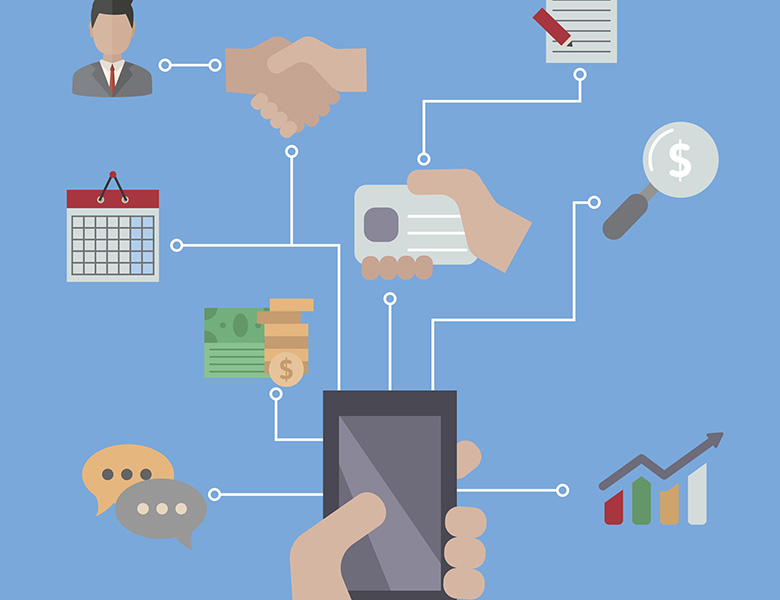Artificial Intelligence (AI) has become more than a trend; it’s everywhere and affects many diverse aspects of business and everyday life. From streamlining mundane tasks to increasing productivity and thousands of other applications, AI tools have transformed the way we work. But did you know?
Test automation couldn’t be an exception.
In this article, we'll look at the exciting intersection of artificial intelligence and test automation, and how they work together to improve software testing efficiency and reliability.
A Few Words About AI
Artificial intelligence is the pinnacle of technological innovation, mimicking human intelligence through machines. It covers a wide range of abilities, including learning, problem-solving, perception, and language processing.
Industry giants such as Microsoft, Google, Meta, and Amazon compete for leadership in the AI domain, constantly pushing the limits of what is possible to gain a strategic advantage in the market. The applications range from deep learning and machine translation to robotics and the Internet of Things, and they promise increased efficiency and productivity across a wide range of fields.
Within AI, there are two types: strong AI and weak AI. Strong AI, also known as artificial general intelligence, is the ultimate goal of creating machines that can solve problems autonomously in the same way that humans do. In contrast, weak AI specializes in performing specific tasks proficiently, as demonstrated by applications such as self-driving cars, personalized recommendations, and virtual assistants such as Alexa and Siri.
Why AI Testing?
AI is more than just a modern technology; it is affecting the future of every field of the software development industry, including automation testing. Its ability to understand complex data and manage repetitive tasks is invaluable. AI helps to predict potential bugs, analyze output data, create test cases, run tests, and identify errors. AI testing primarily evaluates system functionality, performance, and availability.
AI enables QA testers to streamline and automate tasks, significantly reducing manual effort. It's a game changer for maintaining automated UI test cases that consistently fail and detecting errors quickly. The widespread adoption of AI in automation is driven by its ability to automate repetitive tasks, thereby increasing efficiency across a variety of processes. Additionally, AI plays an important role in decision-making processes. Its algorithms improve outcomes in finance, healthcare, and business operations by analyzing data and solving complex problems.
How AI Enhances Test Automation
AI plays a pivotal role in several key areas: basic testing, test execution, test maintenance, continuous improvement, and delivering business value.
Firstly, let's see about basic testing. AI can analyze application behavior, user flows, and requirements to generate test scripts and data. It's like having a super-smart assistant that helps create comprehensive test cases.
When it comes to test execution, AI's capabilities shine even brighter. It can facilitate the execution of test cases across different platforms, areas, and devices, ensuring thorough testing in diverse environments.
Now, onto test maintenance. AI doesn't just sit idly by when applications change. It's proactive, identifying and adapting to changes automatically. This reduces the need for manual script updates and minimizes maintenance efforts over time. Plus, AI promotes continuous learning and improvement, keeping your testing processes sharp and efficient.
From a business perspective, AI adds tremendous value by preparing smart reports tailored to business needs. These reports provide valuable insights into the performance and quality of applications, helping stakeholders make informed decisions.
In essence, AI's integration into test automation brings unparalleled efficiency, adaptability, and insight, making it an indispensable asset in the quest for high-quality software solutions.
Tasks AI Software Testing Can Help With
Let's look at what types of tasks AI can help with in software testing, as well as where it may fall short:
Tasks AI Can Help With
Creation of test cases: AI software can analyze requirements and application behavior to generate comprehensive test cases and automate their execution.
Execution of test cases based on code changes: AI can analyze code changes, assess risk, and determine which test cases need to be executed to ensure the stability of the system before release.
Test planning: AI aids in determining what test cases should be created for new features and how they should be executed, optimizing testing efforts.
Automation of similar workflows: Once a tester automates a workflow, AI can learn from it and automate similar flows, saving time and effort for testers.
Maintenance of test cases: AI can adapt test cases to changes in code, ensuring that tests remain effective even as the application evolves.
UI testing: AI-based software can generate test cases based on UI components, ensuring thorough testing of user interfaces before release.
Tasks AI Can't Help With (For now)
Review of documentations: Understanding system documentation and reviewing it for accuracy and completeness is best done by humans, as AI lacks the contextual understanding required for the thorough review.
Test creation for complex scenarios: Testing complex scenarios involving multiple components in various ways is better handled by QA testers who can anticipate real-world user interactions and edge cases.
Test results and report analysis: While AI can assist in generating test reports, the analysis of results and determining the next steps based on them requires human judgment and domain expertise.
User experience (UX) testing: Assessing user experience and making improvements based on user feedback and interactions is a task that requires human insight and understanding of user behavior.
Practical Applications of AI in Test Automation
Smart element locators: AI aids in identifying and locating elements within applications intelligently, ensuring robust test scripts that adapt to changes in the UI.
Test data generation: AI-driven algorithms analyze application behavior and requirements to generate diverse and relevant test data, enhancing test coverage and accuracy.
Visual validations: AI enables automated visual validations, ensuring that UI elements and layouts render correctly across different devices and browsers.
Dynamic element identification: With AI, test scripts can dynamically identify and interact with elements on web pages or applications, adapting to changes in real time without manual intervention.
Self-healing tests: AI-powered testing frameworks can automatically detect and correct test failures by dynamically adjusting test scripts, reducing the need for manual intervention and maintenance.
Performance testing with AI: AI algorithms analyze system performance data to optimize test scenarios, predict potential performance issues, and simulate real-world user behavior for more accurate performance testing.
Automated bug triage: AI-based bug triage systems analyze bug reports, prioritize them based on severity and impact, and even suggest potential root causes, expediting the resolution process and improving overall software quality.
These examples showcase how AI enhances various aspects of test automation, from test script creation to execution and analysis, enabling to achieve higher efficiency, accuracy, and reliability in their testing processes.
Benefits of AI Testing
Let's look at a few advantages that AI brings to testing.
Speeding up timelines: One important advantage of AI in software testing is its ability to accelerate timelines. From scanning log files and code in mere seconds to discovering flows faster than human testers, AI delivers results swiftly and accurately, minimizing the risk of fatigue-induced errors.
Improved automation: AI revolutionizes automation in software testing by efficiently determining whether modifications to code constitute new features or flow alterations resulting from changes. This clarity about client needs is paramount for effective testing, enabling organizations to leverage AI to compare related websites and apps and identify factors influencing success among target audiences.
Better regression testing: AI empowers organizations to conduct rigorous regression testing with ease. By utilizing machine learning for pattern recognition, AI enhances regression testing accuracy and efficiency, leading to improved script quality and comprehensive test coverage.
Enhanced test coverage: AI facilitates the creation of a large number of test cases, even for complex scenarios, in record time. This not only provides rapid feedback on application quality but also enables continuous testing by seamlessly integrating with CI/CD pipelines, ensuring that testing is an integral part of the development process.
Challenges of AI Test Automation
Finally, let's examine a few of the challenges that arise when using AI for automation testing.
Lack of domain knowledge: Understanding the domain and intricacies of complex applications is crucial for effective testing. Without sufficient domain knowledge, testers may struggle to accurately assess and test the application, leading to potential gaps in test coverage.
Data quality: AI models heavily rely on the quality and diversity of training data. Poor data quality can adversely affect the fairness and accuracy of testing results, highlighting the importance of ensuring high-quality data inputs for AI-driven testing solutions.
Scalability: As testing requirements expand and data sets grow larger, ensuring that AI testing solutions can scale effectively to handle increased workloads and diverse data sets becomes a significant challenge.
Selection of tools and frameworks: Choosing the right tools and frameworks is essential for successful AI-driven testing. Lack of knowledge or improper selection of tools and frameworks can impede testing efforts and hinder overall effectiveness.
Dynamic application changes: Rapid changes in application interfaces, functionality, or underlying code can pose challenges for testing. Adapting test scripts to accommodate frequent changes and ensuring continuous testing coverage becomes essential in dynamic environments.
Security concerns: AI models may be vulnerable to security threats, such as malicious attacks aimed at manipulating inputs to mislead AI models and produce incorrect results. Safeguarding AI testing systems against such threats is critical to maintaining testing integrity and reliability.
Overfitting and generalization: AI models may perform well on familiar data but struggle with unseen or poorly represented data. Guarding against overfitting and ensuring that AI models generalize effectively across diverse data sets are key challenges in AI-driven testing.
A comprehensive strategy that includes domain knowledge, sound data management procedures, thoughtful tool selection, proactive change adaptation, strict security measures, and close model performance monitoring is needed to address these issues. Organizations can use AI to its fullest potential in automation testing to create more dependable, accurate, and efficient testing procedures by overcoming such challenges.
Transform Your Business and Achieve Success with Solwey Consulting
AI is spreading like wildfire through the world's industries, and companies that want to stay competitive and quickly deliver high-quality software solutions should definitely consider implementing it in their testing processes one way or another. There is no doubt that AI testing has a lot of benefits that are quickly changing the way software is made.
At Solwey Consulting, we specialize in custom software development services, offering top-notch solutions to help businesses like yours achieve their growth objectives. With a deep understanding of technology, our team of experts excels in identifying and using the most effective tools for your needs, making us one of the top custom software development companies in Austin, TX.
Whether you need e-commerce development services or custom software consulting, our custom-tailored software solutions are designed to address your unique requirements. We are dedicated to providing you with the guidance and support you need to succeed in today's competitive marketplace.
If you have any questions about our services or are interested in learning more about how we can assist your business, we invite you to reach out to us. At Solwey Consulting, we are committed to helping you thrive in the digital landscape.





